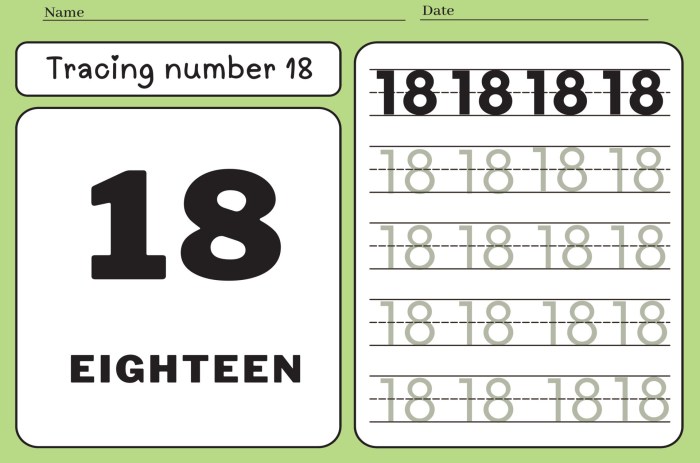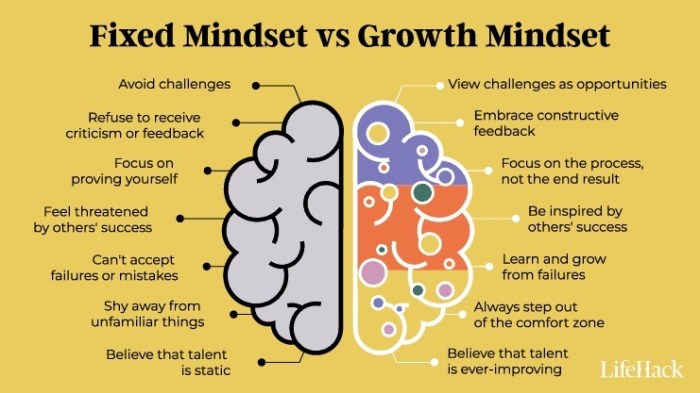Hard truths about life that you need to realize: Navigating the complexities of existence often requires confronting uncomfortable realities. This journey delves into the harsh realities of the human condition, from accepting imperfections to understanding impermanence, loss, and the pursuit of meaning. It’s a raw look at the unavoidable challenges we face and how embracing them can lead to profound personal growth.
This exploration examines the importance of self-reflection, responsibility, and honesty in relationships. We’ll analyze how accepting difficult truths can shape our understanding of purpose, resilience, and coping mechanisms. Prepare to confront uncomfortable truths and discover actionable strategies for navigating life’s inevitable challenges with greater clarity and strength.
Facing Reality’s Harshness
Life, in its raw form, presents a tapestry woven with both joy and hardship. We often romanticize the ideal, painting a picture of effortless success and constant happiness. However, confronting the harsh realities of the human condition is crucial for navigating life’s complexities with resilience and authenticity. This exploration delves into the unavoidable truths of our existence, highlighting the importance of self-awareness and the power of accepting imperfections.Embracing the realities of our limitations and the challenges we face allows us to cultivate a more grounded and practical perspective.
This understanding, in turn, fosters personal growth and a deeper appreciation for the journey itself. Acknowledging the inevitable imperfections within ourselves and others is not a sign of defeat, but a stepping stone towards empathy and genuine connection.
Unavoidable Truths About the Human Condition
Understanding our limitations is a crucial first step in navigating life’s complexities. Five unavoidable truths about the human condition include: limited resources, inevitable loss, inherent flaws, the need for compromise, and the constant struggle for self-improvement. These truths, while sometimes challenging, provide a framework for realistic expectations and informed decision-making.
- Limited Resources: Whether financial, emotional, or time-based, our resources are finite. Recognizing this constraint empowers us to make conscious choices and prioritize our efforts effectively. It encourages a balanced approach to our goals, preventing unrealistic expectations and fostering a more sustainable lifestyle.
- Inevitability of Loss: Loss, in its various forms, is a universal human experience. From the passing of loved ones to the loss of dreams or opportunities, acknowledging the inevitability of loss allows us to cherish the present moment and appreciate the significance of our relationships.
- Inherent Flaws: We all possess imperfections, both large and small. Acknowledging these flaws is essential for self-improvement. Recognizing our imperfections allows us to approach challenges with humility and a willingness to learn and grow.
- The Need for Compromise: Life often requires compromises. Understanding the need for compromise is key to maintaining healthy relationships and navigating challenging situations. Compromise allows for mutual understanding and respect, preventing conflict and fostering collaboration.
- The Ongoing Struggle for Self-Improvement: Self-improvement is an ongoing journey, not a destination. Embracing the constant struggle for growth and development promotes resilience and a lifelong commitment to learning and expanding our perspectives.
Acknowledging Imperfections
Acknowledging imperfections, both in ourselves and others, is paramount to fostering empathy and understanding. We all carry baggage, both internal and external, that shapes our perspectives and behaviors. Recognizing these imperfections in ourselves and others promotes a more compassionate and understanding approach to interactions.
Illusions vs. Realities
| Illusion | Reality | Impact | Actionable Steps |
|---|---|---|---|
| Life will always be easy | Life will inevitably present challenges | Creates unrealistic expectations, leading to disappointment and frustration | Develop coping mechanisms, build resilience, and embrace adaptability |
| Everyone will love and accept you unconditionally | Not everyone will understand or accept you | Can lead to feelings of isolation and inadequacy | Focus on building genuine connections with those who value you, and learn to differentiate between superficial and meaningful relationships |
| You can control everything | You can control your reactions and responses, not the outcome of events | Leads to anxiety and helplessness in the face of uncertainty | Accept that some things are beyond your control. Focus on your actions, and accept the results, good or bad. |
| Happiness is a destination | Happiness is a state of mind | Creates a never-ending pursuit, leading to dissatisfaction | Focus on gratitude, appreciating the present moment, and finding joy in daily experiences |
Accepting Hard Truths vs. Negativity
Accepting hard truths is a crucial step towards personal growth, while succumbing to negativity can lead to stagnation and self-sabotage. Accepting reality involves acknowledging the challenges and limitations, while negativity involves dwelling on those challenges and allowing them to consume you.
Examples of Personal Growth
Recognizing the limitations of resources and the inevitability of loss can lead to more meaningful relationships and a profound appreciation for life’s experiences. Embracing inherent flaws allows for self-awareness and the opportunity for continuous personal development. By accepting these truths, we are better equipped to face challenges and embrace growth opportunities.
The Impermanence of Things

Life is a constant flux, a river of change that carries us along its ever-shifting currents. From the fleeting moments of joy to the inevitable pangs of sorrow, the fundamental truth of impermanence underpins our existence. Acknowledging this truth, while challenging, allows us to navigate life’s trials with greater resilience and appreciation for the present moment. It’s not about denying change, but understanding its inherent nature and learning to adapt.Understanding impermanence is not merely an abstract philosophical concept; it’s a tangible force that shapes our experiences in every facet of life.
Relationships evolve, possessions decay, and our own health fluctuates. This continuous transformation can be unsettling, yet by accepting it, we open ourselves to a deeper understanding of life’s rhythm and a profound sense of interconnectedness.
Different Aspects of Impermanence
Relationships, possessions, and health are all subject to the relentless tide of change. Relationships, built on shared experiences and emotions, are constantly evolving, adapting, and sometimes dissolving. Possessions, tangible representations of our desires and achievements, are vulnerable to damage, loss, or obsolescence. Our health, a precious gift, is susceptible to illness, aging, and the eventual limitations of the physical body.
Recognizing this universal truth helps us to appreciate the present moment, rather than clinging to what may be lost.
How Understanding Impermanence Reduces Suffering
The recognition of impermanence can significantly lessen the pain associated with loss and change. By accepting that everything is in a state of flux, we detach from the illusion of permanence, which is often the source of suffering. This detachment allows us to experience joy and sorrow with a greater sense of equanimity. We don’t cling to the idea that a relationship or possession will last forever, nor do we fear the inevitable decline in health.
Facing hard truths about life is tough, but sometimes necessary. One such truth is the reality of decluttering your life, which often mirrors the challenges of minimalism. For example, dealing with the 7 common struggles of minimalist beginners and how to overcome them can be a powerful lesson in accepting change. 7 common struggles of minimalist beginners and how to overcome them is a great resource for understanding this.
Ultimately, these hard truths about life, whether they’re about possessions or broader life choices, help us to prioritize what truly matters.
This detachment creates space for acceptance and allows us to focus on what we can control—our reactions and our present actions.
Perspectives on Impermanence and Responses to Loss and Change
| Perspective | Impact on Emotions | Actions Taken | Long-term Effects |
|---|---|---|---|
| Denial | Intense grief, anxiety, and resentment. | Avoidance, clinging to the past, and resisting change. | Prolonged suffering, difficulty adapting, and strained relationships. |
| Acceptance | Acceptance of the loss or change with sadness, but also with understanding. | Embracing new opportunities, adapting to circumstances, and maintaining relationships with empathy. | Greater resilience, improved emotional regulation, and strengthened relationships. |
| Appreciation | Acknowledging the beauty and value of the past, while focusing on the present moment. | Cultivating gratitude for experiences, cherishing memories, and seeking new connections. | Enhanced well-being, improved perspective, and a deeper appreciation for life. |
| Transcendence | Finding meaning beyond personal loss or change, often through a spiritual or philosophical framework. | Seeking purpose, engaging in meaningful activities, and fostering a sense of connection with others. | A sense of peace, fulfillment, and connection to something larger than oneself. |
Cultural Approaches to Impermanence
Different cultures approach the acceptance of impermanence in various ways. Some Eastern philosophies, like Buddhism, explicitly incorporate the concept of impermanence (annica) as a central tenet. Practices like meditation and mindfulness are used to cultivate an understanding and acceptance of change. Other cultures might express this through traditions surrounding death and remembrance, or through rituals celebrating the cycle of life and seasons.
These diverse approaches highlight the universality of the human experience of impermanence.
Resilience Through Embracing Impermanence
Embracing impermanence allows us to cultivate resilience. When we recognize that relationships will evolve, possessions will be lost, and health will change, we approach these inevitable transitions with less fear and more acceptance. For instance, a person who loses a job may initially experience distress, but if they accept impermanence, they can view it as an opportunity for new beginnings and a chance to explore different career paths.
Similarly, the acceptance of aging can lead to a deeper appreciation for the wisdom gained over time. Resilience is not the absence of hardship, but the ability to adapt and grow through it.
Facing hard truths about life is tough, but sometimes the most surprising revelations come from unexpected places. For example, it’s incredibly inspiring to see how age is no barrier to achieving success, as demonstrated by the incredible stories of entrepreneurs who’ve achieved great things later in life. This article provides powerful proof that age is just a number when it comes to reaching your goals.
Ultimately, though, remembering that life’s journey is full of both challenges and triumphs, big and small, is a truth we should all embrace.
The Inevitability of Loss
Life’s tapestry is woven with threads of joy and sorrow, growth and loss. While we strive to hold onto the moments we cherish, the inevitability of loss is a constant companion. Understanding this fundamental truth allows us to navigate life’s challenges with greater resilience and compassion. Loss, in its various forms, is a universal human experience, shaping our emotional landscapes and prompting us to confront our vulnerabilities.Acknowledging loss as an integral part of the human experience empowers us to approach it with empathy and understanding.
It is not a sign of weakness but a testament to our capacity for profound connection and emotional depth. Embracing the reality of loss is the first step towards navigating its impact on our lives and fostering a greater sense of emotional well-being.
Understanding the Impact of Inevitable Loss
Loss profoundly impacts emotional well-being, triggering a spectrum of responses. The intensity and duration of these responses vary depending on the nature of the loss and the individual’s coping mechanisms. Grief, sadness, anger, and even relief can manifest in the wake of loss. It’s essential to acknowledge and validate these emotions as a natural part of the healing process.
Types of Losses
Loss encompasses a wide range of experiences, from the death of a loved one to the ending of a relationship, the failure to achieve a significant goal, or the loss of a cherished opportunity. These losses can affect us deeply, challenging our perspectives and forcing us to adapt to a new reality. Acknowledging the multifaceted nature of loss is crucial for understanding its diverse impact on our lives.
- Relationship Losses: The end of a romantic partnership, the passing of a close friend, or the estrangement from a family member can evoke profound sadness and loneliness. These losses can challenge our sense of belonging and connection, prompting us to re-evaluate our relationships and the meaning we find in them.
- Dream Losses: The realization that a cherished dream is unattainable can trigger feelings of disappointment and frustration. This type of loss requires us to reassess our aspirations and perhaps redefine our goals.
- Opportunity Losses: Missing out on a job promotion, a scholarship, or a significant life experience can feel like a loss of potential. This can lead to self-doubt and regret, urging us to examine the choices we’ve made and the paths we’ve taken.
Preparing for Potential Losses and Developing Coping Mechanisms
Anticipating potential losses allows us to develop strategies to navigate these challenges. By understanding the potential impact of loss, we can create a safety net of support and resources. This proactive approach can mitigate the intensity of grief and facilitate a more resilient recovery.
Coping Strategies for Dealing with Loss
| Type of Loss | Initial Response | Healthy Coping Mechanism | Long-term Adjustments |
|---|---|---|---|
| Death of a loved one | Shock, denial, grief, anger | Allowing oneself to grieve, seeking support from others, engaging in healthy activities | Adjusting to a life without the loved one, finding new sources of comfort and support |
| End of a relationship | Pain, hurt, confusion, anger | Acknowledging the feelings, expressing emotions in a healthy way, focusing on self-care | Developing a stronger sense of self, redefining relationship needs, seeking new connections |
| Loss of a job | Fear, anxiety, insecurity, shame | Seeking professional counseling, actively searching for new opportunities, maintaining a positive mindset | Developing new skills, refining career goals, adjusting to a new financial situation |
| Failure to achieve a dream | Disappointment, frustration, self-doubt | Re-evaluating goals, focusing on personal growth, seeking mentorship or support | Redefining aspirations, exploring alternative paths, maintaining resilience |
Acknowledging and Processing Grief
Grief is a natural and necessary part of the healing process. It’s essential to acknowledge and process grief in a healthy manner. Suppressing or ignoring grief can hinder healing and potentially lead to more profound emotional challenges in the long run. Seeking support from others and engaging in healthy coping mechanisms can facilitate the processing of grief and promote emotional well-being.
The Value of Self-Reflection
Embarking on a journey of self-discovery requires confronting the hard truths of life. Understanding our strengths, weaknesses, motivations, and patterns of behavior is crucial for navigating life’s complexities and achieving personal growth. Self-reflection acts as a compass, guiding us toward a deeper understanding of ourselves and our place in the world. It’s a process of honest introspection that can illuminate the path to a more fulfilling life.Self-reflection is not merely a passive contemplation; it’s an active engagement with our thoughts, feelings, and actions.
Introspection allows us to analyze our experiences, identify recurring themes, and understand the underlying reasons behind our choices and reactions. This process of examination provides invaluable insights into our values, beliefs, and priorities.
Methods of Self-Reflection
Understanding different methods of self-reflection can help tailor the process to individual needs and preferences. By exploring various approaches, we can gain a more comprehensive understanding of ourselves.
| Method | Steps Involved | Potential Benefits | Potential Pitfalls |
|---|---|---|---|
| Journaling | Regularly writing down thoughts, feelings, experiences, and observations. Focusing on specific prompts or themes can deepen the reflection. | Provides a tangible record of thoughts and feelings, aiding in identifying patterns and triggers. Can promote emotional processing and clarity. | Can be time-consuming, may not be suitable for individuals who struggle with expressing their thoughts in writing, and may lead to over-analysis or dwelling on negative experiences. |
| Meditation | Quieting the mind through focused attention, often on the breath or a mantra. Practicing mindfulness allows for deeper self-awareness. | Promotes emotional regulation, reduces stress, and fosters a sense of calm. Can help identify automatic thoughts and reactions. | Requires consistent practice, may not be effective for individuals with strong anxiety or restlessness, and the initial experience may be challenging. |
| Mind Mapping | Visually representing thoughts, ideas, and connections related to a specific issue or experience. | Helps in organizing complex information and identifying connections between different aspects of life. Can reveal hidden patterns and insights. | Can be overwhelming for some individuals, may not be suitable for those who find visual methods distracting, and requires creativity and imagination. |
| Conversation with trusted individuals | Sharing thoughts and feelings with a trusted friend, family member, or therapist. Seeking feedback from others can provide valuable perspectives. | Provides external validation and different viewpoints. Can help in gaining objectivity and understanding the impact of our actions on others. | Requires vulnerability and trust. May be difficult for individuals who are not comfortable with sharing personal information or who struggle to trust others. Finding a truly understanding and objective individual is important. |
Obstacles to Self-Reflection
Several obstacles can hinder the process of self-reflection. Addressing these challenges is essential for fostering meaningful self-discovery.Common obstacles include:
- Fear of vulnerability: Acknowledging our flaws and imperfections can be daunting. This fear often stems from societal pressures to present a perfect image. Overcoming this involves recognizing that vulnerability is a strength, not a weakness, and that embracing our imperfections allows for genuine growth.
- Lack of time and focus: In today’s fast-paced world, dedicating time to self-reflection can feel challenging. Prioritizing self-reflection and incorporating short periods of introspection into daily routines can help overcome this obstacle.
- Negative self-talk: Self-criticism and judgment can derail the process of self-reflection. Challenging negative thoughts and replacing them with positive affirmations can help shift the focus towards constructive self-assessment.
Examples of Personal Growth
Self-reflection can lead to profound personal growth. For example, recognizing a pattern of procrastination can motivate individuals to develop strategies for time management. Understanding a fear of public speaking can encourage individuals to seek out opportunities to overcome this challenge. Through self-reflection, we can identify areas for improvement and implement strategies for personal transformation.
The Pursuit of Meaning and Purpose
The relentless search for meaning and purpose is a fundamental human drive. We grapple with existential questions, seeking to understand our place in the vast universe and the significance of our individual lives. This quest often intertwines with our perceptions of reality and our acceptance of its inherent complexities. Understanding that life’s challenges are intertwined with the pursuit of meaning and purpose, provides a powerful framework for navigating this journey.The acceptance of hard truths, like the impermanence of things and the inevitability of loss, can profoundly shape our understanding of meaning.
When we acknowledge the transient nature of life, we often find a deeper appreciation for the present moment and the importance of meaningful connections. This acceptance allows us to focus on what truly matters, fostering a sense of purpose rooted in experiences rather than fleeting aspirations. Recognizing that our existence is finite can lead to a more intentional and fulfilling life.
Facing hard truths about life is tough, but acknowledging them is the first step to growth. Sometimes, you just need a quick pick-me-up to navigate those realities. Fortunately, there are instant mood boosters to help you through challenging times. Exploring options like want lift yourself instant mood boosters can provide temporary relief and strategies for dealing with the difficult aspects of life.
But remember, these are just tools; ultimately, understanding and accepting the realities of life is key to lasting well-being.
Different Perspectives on Purpose and Meaning
Various perspectives offer different approaches to defining meaning and purpose. Some individuals find purpose in contributing to something larger than themselves, such as their community or a cause they believe in. Others may find meaning in personal growth, creative expression, or the pursuit of knowledge. Still others seek meaning through relationships, service, or a connection to something spiritual.
Approaches to Finding Meaning and Purpose
Understanding the diverse approaches to finding meaning allows individuals to explore different paths and identify those that resonate most deeply. This exploration can provide valuable insights into personal values and aspirations. This exploration is a vital step in defining a personal purpose.
| Approach | Steps Involved | Potential Benefits | Potential Drawbacks |
|---|---|---|---|
| Contribution to a Larger Cause | Identifying a cause or community you care about, volunteering time or resources, engaging in activism or advocacy | Sense of belonging, fulfillment from making a difference, potential for personal growth, strong connections with others | Potential for burnout, difficulty in achieving tangible results, frustration with resistance or inaction from others |
| Personal Growth and Development | Setting personal goals, engaging in activities that foster self-improvement, seeking new experiences and knowledge, embracing challenges | Increased self-awareness, enhanced confidence, greater resilience, satisfaction from personal achievements | Potential for self-criticism, difficulty in maintaining motivation, feeling overwhelmed by the enormity of the task |
| Creative Expression | Exploring artistic pursuits, writing, music, visual arts, etc., finding avenues to express oneself authentically | Emotional release, self-discovery, connection with others through shared creativity, fulfillment from artistic expression | Difficulty in finding a receptive audience, potential for rejection or criticism, dependence on external validation |
| Spiritual Connection | Engaging in practices that foster a connection to something greater than oneself, meditation, prayer, seeking spiritual guidance | Sense of peace, inner strength, profound understanding of existence, acceptance of oneself and others | Difficulty in finding a shared understanding with others, potential for misinterpretation or misunderstanding of spiritual concepts, potential for dogma |
Actionable Steps to Define Personal Purpose
Defining personal purpose is a journey of self-discovery. The following steps can guide individuals in this process. This is a personal process, and these are merely suggestions to help in the journey of finding one’s purpose.
- Identify personal values: Reflect on what truly matters to you. Consider what principles guide your decisions and actions. Examples include honesty, compassion, creativity, or community.
- Explore passions and interests: Engage in activities that spark joy and enthusiasm. Consider hobbies, interests, or areas of expertise that resonate with you. Think about what activities leave you feeling fulfilled and engaged.
- Analyze past experiences: Reflect on moments that have been meaningful or significant. Identify patterns in your experiences, and identify lessons learned.
- Consider your strengths and weaknesses: Acknowledge both your talents and areas needing development. Understanding your strengths can help you identify potential avenues for purpose. Recognizing your weaknesses allows for strategic planning and growth.
- Seek feedback from others: Discuss your values, passions, and aspirations with trusted friends, family, or mentors. Gain perspectives from others can offer valuable insights into your strengths and potential paths.
- Experiment and iterate: Try different activities and approaches to finding meaning and purpose. Don’t be afraid to experiment and adjust your plans as you gain a clearer understanding of your values.
The Importance of Responsibility
Taking responsibility for our choices and actions is fundamental to personal growth and well-being. It’s not just about avoiding blame; it’s about embracing the power we have to shape our lives and contribute to a better world. This involves acknowledging the consequences of our decisions, both positive and negative, and striving to learn from them. It’s a crucial step in developing self-awareness and building a foundation for a more fulfilling life.
Understanding the Nature of Responsibility
Responsibility extends beyond simply fulfilling obligations. It encompasses a deep understanding of the impact our actions have on ourselves and others. This understanding is crucial for personal growth, as it allows us to learn from our mistakes and develop more effective strategies for future endeavors. It’s a proactive approach to life, rather than a reactive one.
Responsibility and Personal Growth, Hard truths about life that you need to realize
Accepting responsibility fosters personal growth in several ways. First, it allows for introspection and self-evaluation. By examining our choices and their outcomes, we gain valuable insights into our strengths and weaknesses. Second, it cultivates resilience. Facing the consequences of our actions, even if they are negative, builds our capacity to bounce back from setbacks.
Third, it promotes accountability, which is essential for building trust and maintaining healthy relationships.
Accountability and Personal Well-being
Accountability is inextricably linked to personal well-being. When we hold ourselves accountable, we’re more likely to follow through on commitments, both big and small. This consistency builds self-confidence and a sense of accomplishment. Conversely, a lack of accountability can lead to feelings of guilt, shame, and ultimately, diminished self-worth. Accountability also strengthens our character and integrity.
Taking Responsibility vs. Avoiding Responsibility
Taking responsibility is a proactive and empowering choice. It allows us to learn from our mistakes, grow from challenges, and build a stronger sense of self. Avoiding responsibility, on the other hand, can lead to feelings of guilt, resentment, and a sense of powerlessness. It hinders personal growth and can negatively impact relationships. Avoiding responsibility often creates a vicious cycle of self-sabotage.
Benefits of Taking Responsibility
| Area of Life | Actions Taken | Results | Long-Term Impact |
|---|---|---|---|
| Relationships | Acknowledging mistakes in communication, apologizing sincerely, and actively listening to others’ perspectives. | Improved communication, stronger bonds, increased trust and understanding. | More fulfilling and supportive relationships, healthier conflict resolution skills. |
| Career | Taking ownership of projects, seeking feedback, and proactively identifying areas for improvement. | Increased productivity, better performance reviews, opportunities for advancement. | Stronger professional reputation, enhanced career prospects, greater job satisfaction. |
| Personal Finances | Tracking expenses, creating budgets, and making responsible financial decisions. | Improved financial stability, reduced debt, increased savings. | Greater financial freedom, reduced stress, and a sense of security in the future. |
| Health | Taking responsibility for diet, exercise, and overall well-being. | Improved physical and mental health, increased energy levels, reduced risk of illness. | Enhanced quality of life, increased longevity, and a greater sense of vitality. |
Navigating Relationships with Honesty: Hard Truths About Life That You Need To Realize
Honesty is the bedrock of any healthy relationship, whether familial, platonic, or romantic. It’s a cornerstone upon which trust and understanding are built, fostering deeper connections and more meaningful interactions. Without honesty, relationships become fragile and susceptible to misunderstandings, resentment, and ultimately, breakdown. Recognizing this fundamental truth is crucial for navigating the complexities of interpersonal connections.Honesty in relationships isn’t merely about avoiding lies; it’s about actively choosing transparency, vulnerability, and genuine communication.
It requires a willingness to share thoughts and feelings, even when they are uncomfortable or difficult. This proactive approach creates a safe space for open dialogue, fostering a deeper understanding between individuals.
Significance of Honesty in Relationships
Honesty in relationships fosters trust and mutual respect. It allows individuals to feel safe and understood, creating a foundation for genuine connection. This transparency promotes empathy and encourages active listening, enabling both parties to truly comprehend each other’s perspectives. Ultimately, honest communication is a powerful tool for conflict resolution and strengthens the overall bond within a relationship.
Consequences of Dishonesty in Interpersonal Connections
Dishonesty in relationships erodes trust and creates a sense of insecurity. Lies and deceit sow seeds of doubt and suspicion, leading to emotional distance and strained communication. Repeated dishonesty can fracture the very foundation of a relationship, ultimately leading to its demise. Examples include fractured friendships due to betrayal or damaged romantic partnerships resulting from infidelity. Such instances highlight the destructive power of dishonesty and underscore the importance of choosing honesty.
Strengthening Relationships Through Honesty
Honesty can significantly strengthen relationships by fostering a sense of mutual respect and trust. Open communication allows individuals to express their needs and concerns, enabling them to understand each other better. For instance, expressing appreciation for a partner’s efforts or acknowledging a friend’s support strengthens the bond between them. Honesty also enables effective conflict resolution, leading to a more positive and harmonious dynamic.
Strategies for Constructive Communication of Difficult Truths
Communicating difficult truths requires empathy, tact, and a genuine desire to understand the other person’s perspective. It’s essential to approach the conversation with a focus on understanding and finding solutions rather than assigning blame. Choose a calm, private setting and actively listen to the other person’s response, validating their feelings and acknowledging their perspective.
| Relationship Type | Communication Style | Potential Outcomes | Alternative Approaches |
|---|---|---|---|
| Romantic Partnership | Direct and honest, but mindful of the partner’s emotional state. Acknowledge feelings, validate their concerns, and focus on shared solutions. | Increased trust, deeper understanding, potential for conflict resolution, stronger bond. | Using “I” statements, focusing on specific behaviors rather than generalizing, and offering alternative solutions. |
| Friendship | Open and supportive, but sensitive to the friend’s feelings. Emphasize shared values and mutual respect, focusing on maintaining the friendship. | Continued support, deeper understanding, stronger bond, ability to navigate disagreements. | Using “we” language, acknowledging the friend’s perspective, and offering empathy. |
| Family | Respectful and empathetic, acknowledging family dynamics and cultural sensitivities. Focus on the importance of maintaining familial bonds. | Potential for reconciliation, understanding of different viewpoints, strengthened family unit. | Establishing clear boundaries, prioritizing open communication, and seeking common ground. |
| Professional | Direct and professional, focusing on clear communication and mutual respect. Maintain confidentiality and professionalism. | Stronger working relationship, enhanced collaboration, improved performance. | Utilizing a feedback framework, offering constructive criticism, and focusing on improvements. |
Ultimate Conclusion

In conclusion, acknowledging the hard truths about life is not about succumbing to negativity, but rather about embracing a more realistic and nuanced perspective. By facing reality’s harshness, understanding impermanence, accepting loss, and engaging in self-reflection, we can develop greater resilience, foster stronger relationships, and ultimately live more fulfilling lives. This journey encourages readers to take responsibility for their choices and navigate life’s complexities with honesty and courage.











